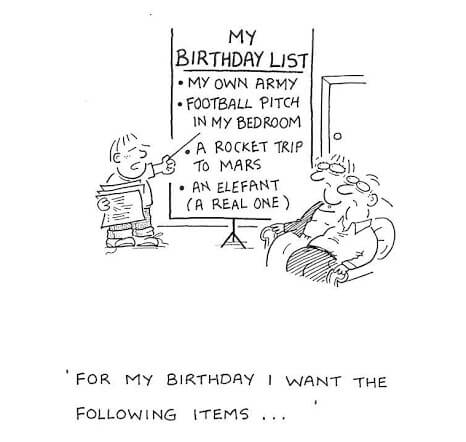About Time: Women Learnt to Negotiate BetterBy Tom Stevenson
“My hope for the future, not just in the music industry, but in every young girl I meet… is that they all realize their worth and ask for it.” Taylor Swift
A few weeks ago a girl, who is not Taylor Swift, but who sits opposite me at work made a phone call to a company that supplies custom made pens. “Oh hi there. I hope I’m not interrupting anything. I was just wandering whether I could possibly have a quote for 700 pens if that’s alright?” she said.
That person’s job is to sell pens. That company makes money by selling pens. When you buy pens from that company, they are succeeding in their business. So why ask for that quote like we are asking them to move mountains?
The simple answer is we’re Brits. We’re a polite, self-effacing bunch, who have been taught from a very young age that ‘I want doesn’t get’ and good manners, above all else, are the key to all human interaction. This is a fallacy. The truth is that I want does get and manners, in business and negotiation, get you nowhere.
Negotiate: Bidding with Conviction
The next time you ask for something just replay how you ask for it. We hide behind weasel words and adverbs. We think that adding qualifying statements and ‘possibly’, ‘potentially’ or ‘maybe’ will somehow make the other person warm to us more, but in fact it just makes you seem unconvincing and not serious about what you’re asking for. And here’s the kicker. A survey conducted by YouGov in 2013 through 1000 UK companies in a wide range of industries showed that women ask for less, less often, get less and are less happy with the outcomes.
Children are the best at asking for what they want. My boss, professional negotiator Clive Rich, tells a story about supermarket shopping with his youngest son. When they get to the check-out he says, “Dad, I want a chocolate bar”. He doesn’t say, “Look, Dad. I know you’ve spent a fortune on the shopping and you’ve only got five minutes left on the meter, but I was just wandering, you know if I’m a good boy for the rest of the day, if I could have a chocolate bar please.” Nah. Straight to the point. Dead serious. “Dad, I want a chocolate bar.”
So our recommendations on bidding convincingly are:
– Ask for what you want. “I need”, “I want” and ‘I require” show that you mean it. – Only give one good reason – How you say it is just important as what you say – And in a negotiation, always bid firstNegotiate: Exploring Wants and Needs
The research showed that women are stronger at other parts of the negotiation process. Before bidding and bargaining, a negotiation has to pass through the exploration of wants and needs phase. Women are stronger at asking questions, listening and exploring the underlying motivations of the other side. This phase is absolutely essential to the latter stages of negotiation because it can reveal ‘coinage’. Coinage is something you can give that is loose change to you, but of high value to the other side. For instance, if you identify the other side is very interested in expanding their voice or global reach and you have 25k followers on Twitter, you are able to provide value to the other side without cost to you. This can only happen if you ask questions, listen and try to truly understand what motivates the other side.
Negotiate: Matching the Right Behaviour to the Right Person
Everyone is different and therefore understanding which behaviour to match with which person is crucial in negotiations. People are normally at one end of a spectrum. They can be:
impulsive/considered self-reliant/need approval confrontational/harmoniousIf someone is detail orientated, we recommend you propose with reasons. If someone avoids making decisions, we recommend you set incentives. If someone associated, we recommend sharing problems and solutions. If you come up against a tough guy behaving badly, we recommend you make their behaviour the issue. You can intervene by saying, “I’m curious, how would you feel if you walked into a negotiation room and someone started shouting at you?” By forcing that tough guy to answer a question about feelings rather than thoughts, you make their behaviour the issue and the issue of bad behaviour should desist. ‘I feel’ is often more powerful than ‘I think’.
Negotiate: The Last Word
A friend of mine told me today that although we talk about women and the glass ceiling, maybe we should start thinking about glass walls. As hierarchies become flatter, bosses and employees become teams and networks become global we should start thinking about what obstacles exist in moving across, rather than moving up. We are moving towards a world where collaboration is as valuable as commanding and as such emotional intelligence and an understanding of behaviours will become more important in negotiations.
Isn’t it about time we got more of what we wanted? I want you to come to our event on Wednesday called “Women in Business: You Can Get More of What You Want”. It’s an interactive talk on negotiation with my boss, mentor and friend Clive Rich. I want, I need, I require you to be there.
Britain loses £9m an hour from poor negotiation. Each British company could increase their profits 7% per annum through negotiation training* No wonder, when we’re a nation of people that immerse ourselves in awkward, tut when we’re outraged and apologise when someone steps on our foot.




